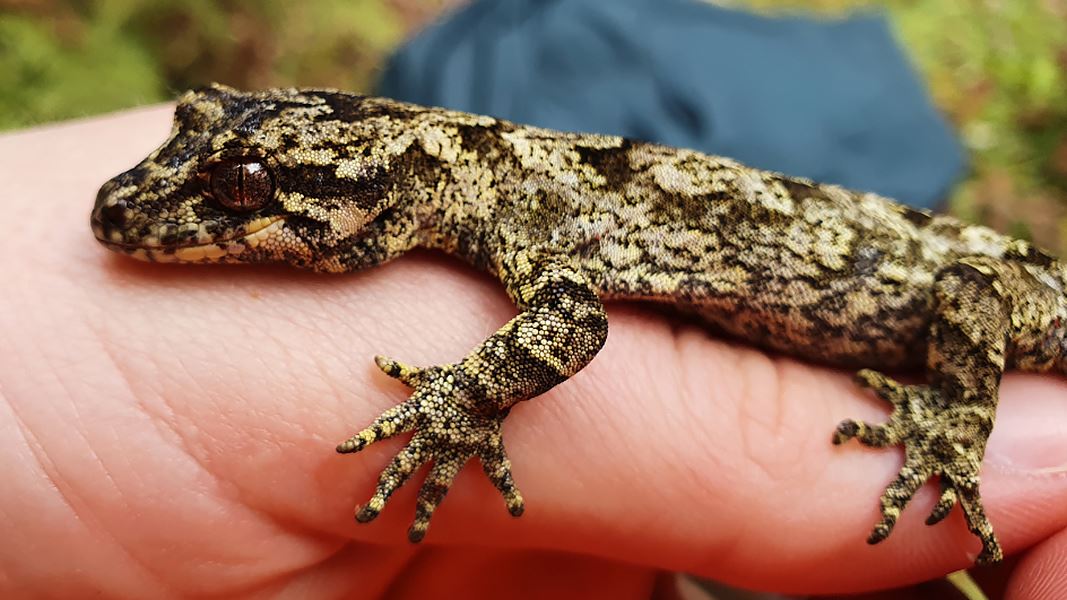Archived content: This media release was accurate on the date of publication.
Date: 11 February 2021
Very little is known about native lizard species in South Westland despite the area containing plenty of excellent lizard habitat.
Last year, DOC announced the rediscovery of the Ōkārito gecko, after only a handful of historic sightings.
With a boost from the Jobs for Nature programme, new rangers from Makaawhio Rūnanga and local businesses have been undertaking monitoring work to discover more about South Westland lizards.
The Government’s Jobs for Nature programme is a $1.245 billion investment in the creation of 11,000 nature-based jobs. As a part of this programme the Department of Conservation will allocate $500 million to projects that will create 6,000 nature-based jobs over a four-year period.
“This year we partnered with Makaawhio to start some work putting out monitoring covers as a means of searching for gecko presence. Recently some of those covers were revisited and more geckos were found, along with a skink.”
These new finds will hopefully contribute to moving the lizard species out of their current ‘Data Deficient’ threat classification.
Kara Edwards, Pouarahi/CEO of Makaawhio says: “This mahi was achieved in partnership … whereby the Rūnanga contract to DOC to provide a range of services. The contracted work included putting out the lizard houses throughout South Westland. The Rūnanga employed folk to undertake the mahi; the Rūnanga member who completed the work had been impacted by Covid, having to return home to Hokitika after losing her mahi due to Covid.
“The rest of the lizard houses have yet to be checked and we are excited about the potential to find more!”
As well as work with lizards, Jobs for Nature has provided workers to progress a range of biodiversity projects. With the extra resources DOC has been able to train and equip the new workforce. There are skydivers sewing catch bags for kiwi, kea and kākāpō programmes, and tour guides and even electricians gearing up to survey for whio, bats and bittern.
Cliff Goodwin, owner and operator of Glacier Valley Eco Tours, has supplemented his business with Jobs for Nature projects, from building trap boxes to clearing vital access tracks in the Ōkārito kiwi sanctuary.
“Because of Jobs for Nature we are able to keep our doors open. This has meant people have still had the opportunity to visit Franz Josef which in turn, helps the whole community,” says Cliff Goodwin.
More information
Like many of New Zealand’s native species, introduced predators like rodents, ferrets, weasels, hedgehogs and cats have caused a drastic decline in lizard populations. As lizards are cold-blooded (ectothermic), the cold makes them even more vulnerable as they are simply too slow to escape from introduced mammalian predators.
New Zealand has 44 recognised species of gecko, 64 species of skink and a high likelihood of many more to be discovered as genetic identification techniques improve and new species are found in remote areas.
If you see a lizard, especially on the West Coast or in the alpine zone, let your local DOC office know or email lizardresearch@doc.govt.nz. It could be an important discovery.
Contact
For media enquiries contact:
Email: media@doc.govt.nz
